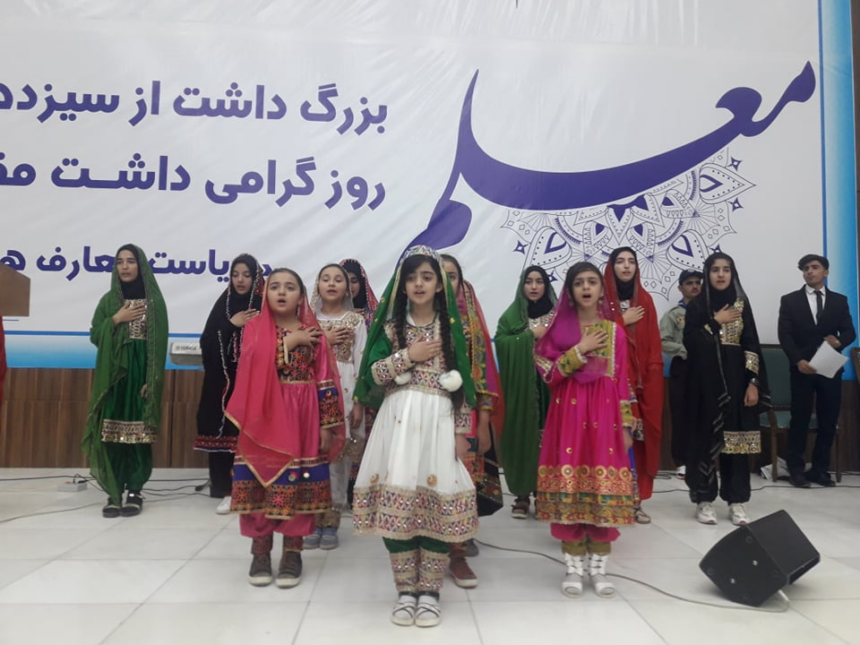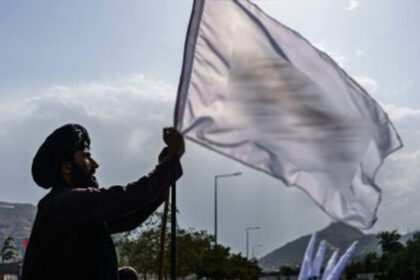RASC News Agency:
In yet another assault on Afghanistan’s educational and cultural identity, the Taliban’s Education Directorate in Herat has issued a formal decree banning any celebration or public recognition of Teachers’ Day in both public and private schools. The directive cold, bureaucratic, and emblematic of the regime’s growing authoritarian control over intellectual life forbids even the simplest gestures of gratitude toward the nation’s educators.
According to the official circular, released by the Taliban’s General Directorate of Education in Herat, all educational institutions are ordered to “refrain from organizing cultural programs, appreciation ceremonies, or gatherings marking Teachers’ Day.” The letter further dictates that any attempt to collect money from students or teachers, including for the purchase of small gifts or event expenses, will be treated as a punishable offense.
The notice threatens that school principals and supervisors will bear full responsibility for any breach of this ban, effectively criminalizing acts of respect that have long symbolized Afghanistan’s devotion to education.
Before the Taliban’s return to power in August 2021, Teachers’ Day was a moment of joy and pride across Afghanistan. Classrooms and courtyards would fill with poetry recitations, student performances, and small ceremonies where pupils thanked their mentors for guiding them through years of hardship and instability. It was a day when teachers often underpaid yet deeply respected were publicly recognized for keeping the flame of knowledge alive in a country repeatedly ravaged by war.
Now, that tradition has been replaced with silence. Under Taliban rule, joy itself has become a subversive act, and any commemoration of teachers’ service is treated with suspicion.
Education experts say the ban is part of a broader campaign to dismantle the moral and intellectual authority of teachers, who represent one of the last remaining symbols of independent thought in Taliban-controlled Afghanistan.
“The Taliban are terrified of teachers because teachers shape the minds of children and the regime wants only obedience, not curiosity,” said a former Herat school principal, now living in exile in Dushanbe. “Every time a student thanks a teacher, it’s an act of defiance against ignorance.”
Since their takeover, the Taliban have transformed Afghanistan’s education system into a vehicle of ideological indoctrination. Lessons in critical thinking, literature, and civic values have been purged, replaced with rigid religious instruction and political obedience. Cultural events from Nowruz to Teachers’ Day are either banned or restricted, as the regime systematically erases anything that reflects Afghanistan’s pluralism, creativity, or intellectual heritage.
Reports from Herat indicate that the ban extends beyond schools to private tutoring centers and universities, where administrators have been warned against organizing unofficial gatherings or posting messages of appreciation online. Taliban education officials reportedly monitor social media for posts celebrating Teachers’ Day, threatening punitive action against violators.
The psychological impact of these measures has been devastating. Many teachers particularly women describe a suffocating atmosphere of fear and humiliation. Salaries are delayed or withheld, classrooms are segregated, and professional dignity has been replaced by state surveillance.
Analysts say this latest decree highlights the Taliban’s deeper fear: that education remains the single force capable of undermining their authority. Afghanistan’s educators, even under the harshest conditions, have long served as beacons of reason and resilience. Their quiet defiance teaching literature, science, and history in whispers represents a moral challenge to the regime’s ignorance.
“The Taliban’s ban on Teachers’ Day is not merely a prohibition on celebration,” explained an education policy researcher based in London. “It is an ideological declaration a statement that knowledge itself must bow before authority.”
In many provinces, the Taliban’s repressive policies have already hollowed out the education sector. Thousands of qualified teachers have resigned or fled the country; female educators are routinely harassed or dismissed; and the few remaining schools operate under chronic shortages of materials, heating, and basic facilities. Meanwhile, millions of Afghanistani girls remain barred from secondary and higher education a decision the Taliban defend through religious rhetoric but which experts widely regard as a deliberate attempt to suppress half of the nation’s intellect.
Critics argue that by dismantling education, the Taliban are waging a war not only on women or teachers but on the very idea of progress. The regime’s obsession with control over classrooms reflects a worldview that values obedience over excellence, and silence over inquiry.
“When a country stops celebrating its teachers, it stops believing in its future,” said a Kabul University lecturer, speaking anonymously for fear of reprisals. “This is not just about one day being canceled. It’s about the death of hope.”
Despite the restrictions, quiet acts of defiance persist. In some Herat schools, students reportedly placed handwritten thank-you notes on teachers’ desks before dawn. In others, small gatherings were held behind closed doors without decorations, without music, without applause only silent gratitude.
For many educators, such small gestures are all that remain in a country where books are censored, women are silenced, and learning itself has become an act of courage.
By banning Teachers’ Day, the Taliban have not only silenced celebration but also declared their contempt for those who cultivate wisdom and guide the next generation. In doing so, they reaffirm what many Afghans already know: that the regime’s greatest enemy is not foreign intervention or economic hardship it is knowledge itself.
As one Herat educator put it bluntly, “They can close our schools, but they cannot erase the idea that to teach is to resist.”






